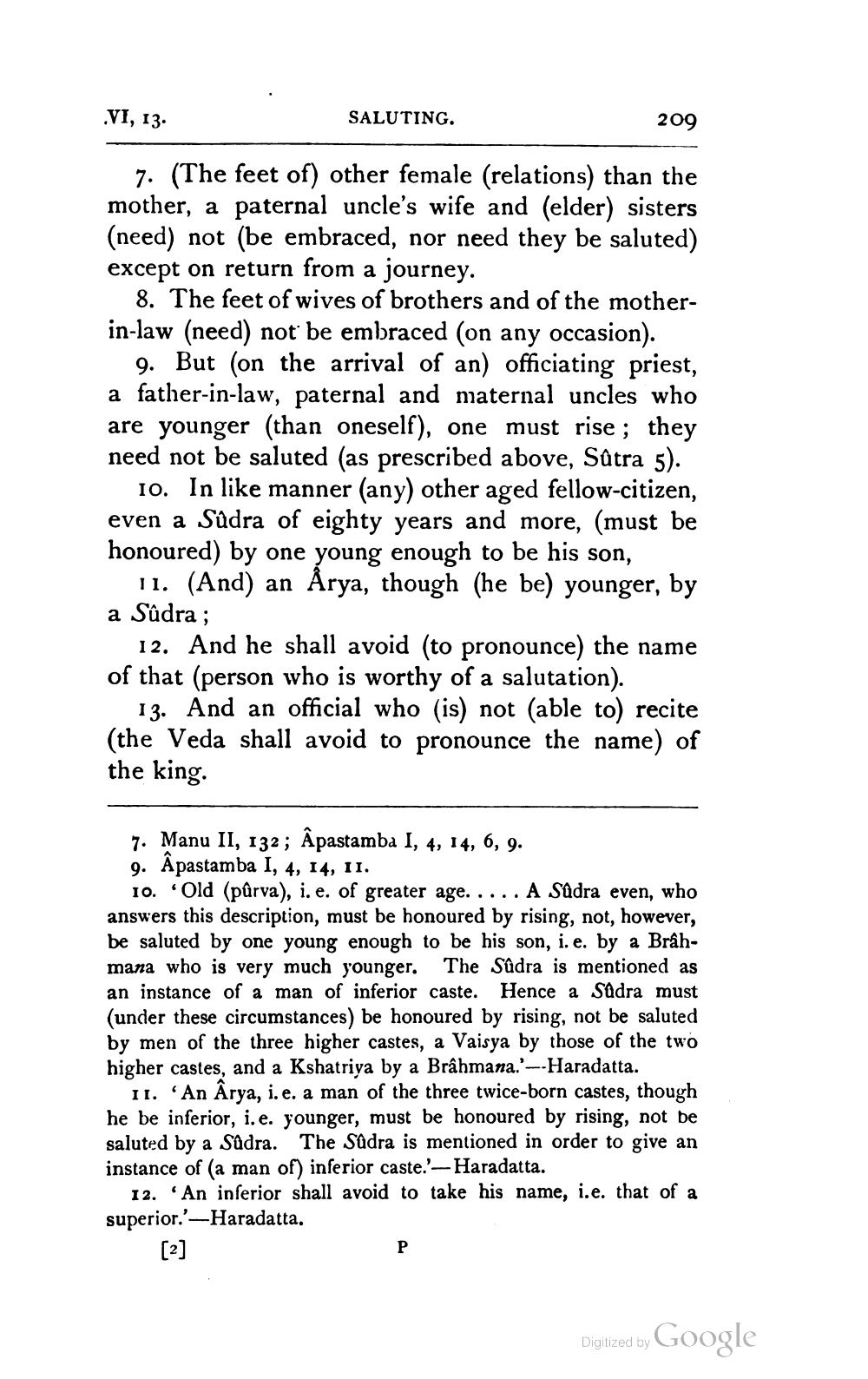________________
VI, 13.
SALUTING.
209
7. (The feet of) other female (relations) than the mother, a paternal uncle's wife and (elder) sisters (need) not (be embraced, nor need they be saluted) except on return from a journey
8. The feet of wives of brothers and of the motherin-law (need) not be embraced (on any occasion).
9. But (on the arrival of an) officiating priest, a father-in-law, paternal and maternal uncles who are younger (than oneself), one must rise; they need not be saluted (as prescribed above, Sûtra 5).
10. In like manner (any) other aged fellow-citizen, even a Sûdra of eighty years and more, (must be honoured) by one young enough to be his son,
11. (And) an Årya, though (he be) younger, by a Sûdra;
12. And he shall avoid (to pronounce) the name of that (person who is worthy of a salutation).
13. And an official who (is) not (able to) recite (the Veda shall avoid to pronounce the name) of the king
7. Manu II, 132 ; Âpastamba I, 4, 14, 6, 9. 9. Âpastamba I, 4, 14, 11.
10. 'Old (pûrva), i. e. of greater age. .... A Sadra even, who answers this description, must be honoured by rising, not, however, be saluted by one young enough to be his son, i.e. by a Brâhmana who is very much younger. The Sûdra is mentioned as an instance of a man of inferior caste. Hence a Sadra must (under these circumstances) be honoured by rising, not be saluted by men of the three higher castes, a Vaisya by those of the two higher castes, and a Kshatriya by a Brahmana.'-.Haradatta.
11. 'An Arya, i.e. a man of the three twice-born castes, though he be inferior, i.e. younger, must be honoured by rising, not be saluted by a Sudra. The Sudra is mentioned in order to give an instance of a man of) inferior caste.'--Haradatta.
12. An inferior shall avoid to take his name, i.e. that of a superior.'-Haradatta.
Digitized by Google




